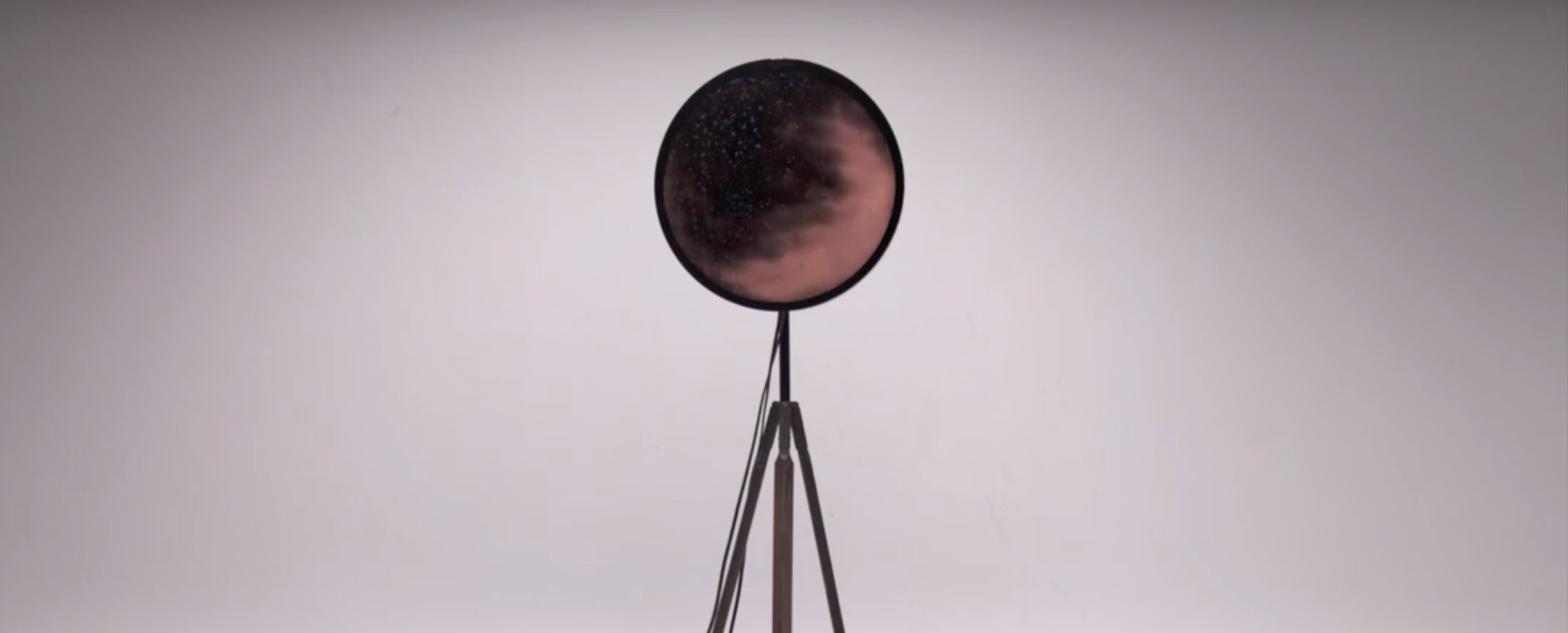
Milan’s Design Week, 4-9 April 2017, is recognized as a premier international event showcasing the latest trends in objects and furniture for the forthcoming year. This year UNSW Art & Design graduate, Nila Rezaei, will join the ranks of international designers selected to exhibit innovative and thought provoking works.
As part of Salone del Mobile Milano’s 56th edition, wherein the cobblestone streets and neighborhoods of this world city are handed over to creative thinkers and makers, Rezaei will exhibit her latest object design Dispersion.
Like many of Rezaei’s recent design projects, Dispersion is an interactive object that has a deliberate goal of encouraging consumers to make positive choices and modify their behaviors to improve the environment.
Dispersion investigates the category of discursive/speculative object design. It’s an interactive mirror, the reflective surface of which is activated through a wind sensor located on top of the frame. The viewer must blow into it to engage the mirror. One of Rezaei’s aims is to encourage conversation and discourse around personal and collective choices that can be made to safe guard the environment moving into the future. Her design addresses the fallout of global oil spills and forces viewers to contemplate the complex and often vexed process of oil exploration and extraction.
To more fully deliver the message of toxicity in oil spills, the visual effect of the mirror has been carefully considered. Rezaei has coated the mirror with two types of black thermochromatic pigment mixed with bio-resin. Rezaei says it’s “a metaphor to an oily surface, which visibly transforms to become clear when heated”.
She’s attached a custom made heating system behind the mirror which activates via the ‘wind’ sensor through a micro-controller, resulting in a slow transformation of the surface from black to clear (Copper). “The Dispersion Process,” says Rezaei, “takes 7-8 minutes, forcing the user to slow down and contemplate the impact of man-made activities that are destroying our planet earth and the ways prevent this from occurring.”
